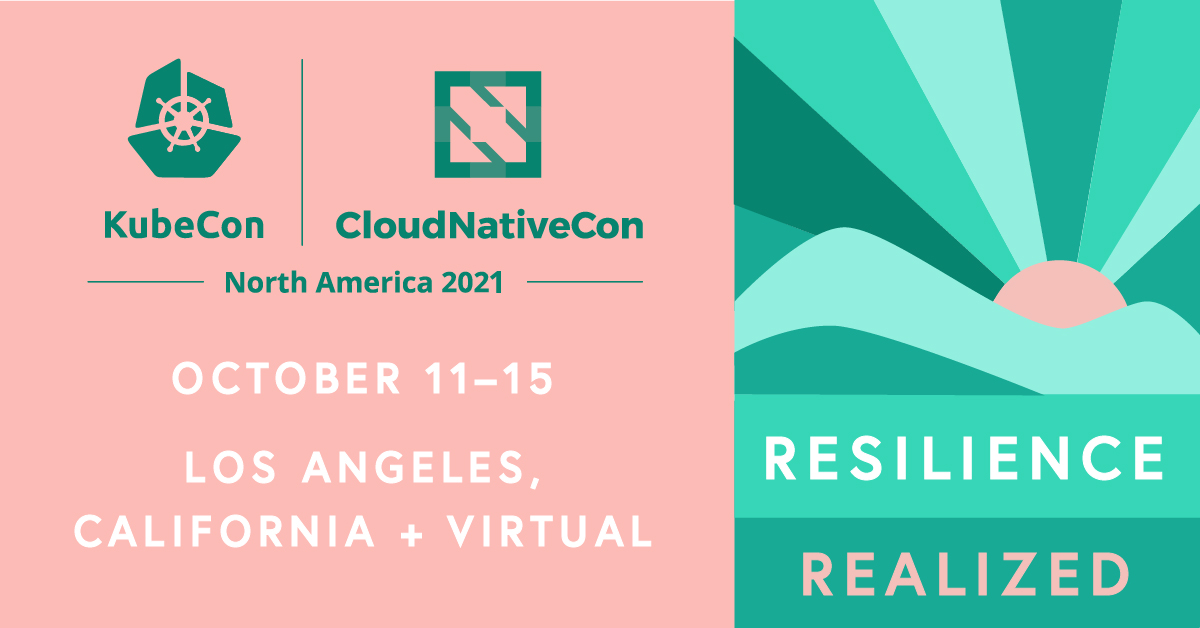The thing we’re looking forward to most is talking to real people again – customers, prospects, thought leaders, partners, groupies, analysts, and swag hunters. To that end, we’d LOVE to see you there. Two options:
In-Person: If, you’re going to Kubecon in LA, stop by our booth to say hi and check out why topology-based observability is the only way to keep pace with your dynamic k8s environment. Our booth number is S85. Use the passphrase “Stacky sent me” to score some sweet swag.
Virtual: If you’re attending the virtual version of the event, we’ll be there too!
WHAT!? You're not going? Do you want to?
We have 30 tickets to the virtual event to give away. We are going to cap our registrations for this raffle at 90, so you have a 1 in 3 chance of winning. The only thing you need to do is (1) leave your details here and (2) follow us on LinkedIn so that you will receive a notification if you’ve won. May the odds be ever in your favor!
What we’re looking forward to at Kubecon 2021
At the conference, adopters and other technologists from the world’s leading open source communities gather to discuss and learn from each other by means of keynotes, breakout sessions, and sponsor showcases.
As you can see in the schedule : there are lots of interesting sessions to go to, but sometimes, many options can be a bit overwhelming. Here’s what we’re specifically looking forward to.
A Different Kind of Cloud Native - Tim Pepper, software engineer at VMware - Wednesday, October 13th
You’d expect that we’d start off with a very technical session, right? Or that Kubecon would start the first day of its main conference with a session that deep dives into the trends that currently mark the cloud-native atmosphere? Well, they don’t. And we love that. One of the first sessions is about Cloud Native in the not-technical but human sense of the word.
Cloud-native, and open source in general, are known for their inclusivity and diversity: amazing people from anywhere in the world and with any background can work together on the most innovative and life-changing tech products. However, the online and location-independent aspects of ‘open source’ can also make us lose track of exactly where we are in the world and how the ‘diversity’ journey is evolving. That’s why in this session, Tim brings an ode to the indigenous people of Los Angeles.
From One to Many, the Road to Multicluster - Kaslin Fields, Developer Advocate, Google Cloud - Wednesday, October 13th
On the same day, you can listen to a presentation by Kaslin Fields, who works as a developer advocate at - the mother of the cloud - Google. During this session, she will discuss how you can go from one to many Kubernetes clusters. She mentions that “as many organizations are starting to adopt Kubernetes, of the first questions they ask is: how do I run and manage multiple Kubernetes clusters?”.
We see this with our own clients. Usually, when companies embark on a Kubernetes journey, they will first start off learning about Kubernetes in general. Then, when learning and growing, they realize a multi-cluster environment is inevitable for better availability. During this session, Kaslin will guide you through the journey of multicluster Kubernetes so far and how Google Cloud can help you shape the future of your own multicluster Kubernetes environment.
The Human Side of Developer Experience - Jasmine James, Engineering Manager, Twitter - Thursday, October 14th
As the engineering manager at Twitter, Jasmine talks about how we can incorporate the human side of development. Even though we’re slowly going back to normal, our lives have changed massively in the last few years due to the pandemic: working from home, with hardly any social interaction, going from offline to online. Even though many developers have been working from home and online for a long time, the pandemic has impacted them as well. Here at StackState, many of us are still working from home. Most - if not all - of the (client) meetings take place on the web. The question is: how can you continue to create great product end-users rave about when there’s not so much offline, human interaction? In this talk, Jasmine describes how to get in touch with the human side of the developer experience to create better software.
Building Prometheus Metrics Support in OpenTelemetry - Alolita Sharma, Amazon - Friday, October 15th
On Friday, Alolita talks about OpenTelemetry, the popular open-source observability framework that has more than 900 active contributors from over 200 organizations. With OpenTelemetry, you can make the most of your telemetry data by instrumenting it to understand application and infrastructure behavior. A must in observability! Currently, contributors are building a metrics pipeline that grows stronger and stronger. That means OpenTelemetry is being enhanced to work with Prometheus and both delta and cumulative metrics. In her talk, Alolita describes how you can ensure a complete metrics pipeline that operates smoothly with Prometheus.
Without a time-traveling topology you cannot really debug your Kubernetes clusters, can you? - Anthony Evans, StackState - booth S85 - every day.
Okay, we’re kidding. Kind of. Because even though we’re not on the keynote speakers list, we will be showing you how you can (and should) make use of topology for Kubernetes observability. A topology that travels back in time is crucial for quick and effective root cause analysis and for building better and more stable environments in the long run, and we’ll show you why. Also, we’re looking forward to chatting about Kubernetes observability in general with you and, of course, we have some nice swag pieces to add to your collection.
We're looking forward to seeing you there.



